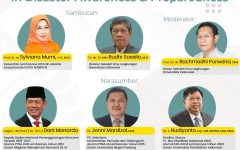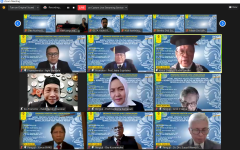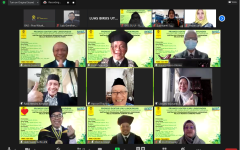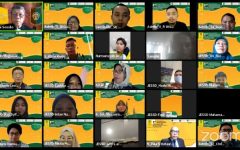Revitalization of Industrial Estates and Development of Sustainable Special Economic Zones
August 9, 2023 2024-12-21 17:17Revitalization of Industrial Estates and Development of Sustainable Special Economic Zones
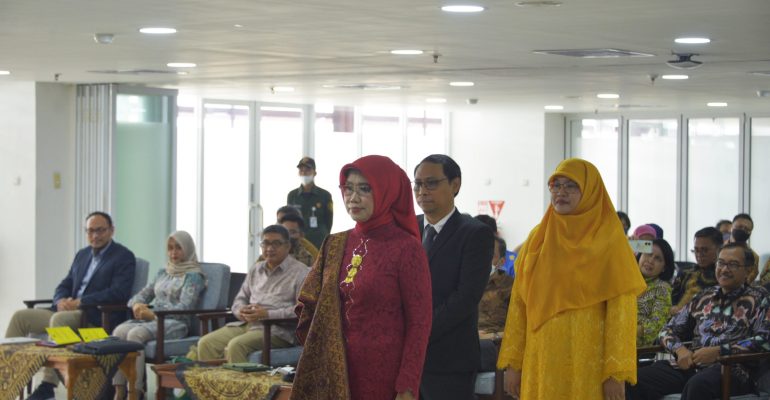
Revitalization of Industrial Estates and Development of Sustainable Special Economic Zones
The decline of an Industrial Estate due to the reduction of raw material sources has an impact on the economy of the region and the surrounding area. The Arun area is an industrial area that has experienced a decline in performance due to the exhaustion of natural gas sources, and the establishment of the Arun Lhokseumawe Special Economic Zone (KEK-AL) is an effort to revitalize it. According to Manik Priandani, a doctoral student at the University of Indonesia’s School of Environmental Sciences (SIL UI), after three years of operation, the impact of KEK-AL on the sustainability of the area is not yet known.
In his dissertation entitled “Revitalization Model for Sustainable Special Economic Zone Industrial Estate”, Manik mentioned that the Arun industrial area was known as a petro dollars area in 1980 to 2000 due to its natural gas production. This area is also located on the strategic route of international shipping in the Malacca Strait. The shortage of raw materials followed by the tsunami and internal conflicts made most industries in the Arun area stop operating. After the Arun liquefied natural gas producer was shut down, most of the Arun industrial area became a state asset.
Seeing this condition, Manik assessed the need for concrete steps by accelerating the revitalization process of an industrial area that has experienced a decline and managing and developing a Special Economic Zone for the industrial sector that is sustainable.
“Internal sustainability (industry) and external sustainability (villages in the surrounding area) are influenced by the sustainable industrial system applied and the regional management strategy,” said Manik.

Manik’s research aims to analyze changes that occur in environmental, social, and economic dimensions and indicators in the external and internal areas of the Arun Industrial Estate before and after the SEZ, analyze the interests and influence of stakeholders on the sustainability of SEZ-AL and formulate a sustainable SEZ industrial area revitalization model. Changes in the area are measured by the sustainability value using the Statistical Matching and normalization method; analysis of stakeholder influence and interests using stakeholder analysis; and formulation of the Sustainable SEZ-AL Industrial Estate Revitalization model in determining the order of indicators using the Analytic Network Process (ANP) method. The results showed that there was an increase in the internal sustainability index, but not much happened to the external sustainability index; some important stakeholders still acted as spectators and the industrial estate revitalization model was a combination of a sustainable industrial system with a sustainable area management strategy.
To realize the goal of sustainable revitalization of the Special Economic Zone industrial area, Manik suggested policies for several stakeholders such as the SEZ National Council, SEZ-AL Regional Council, SEZ-AL Business Entity Builders and Managers (BUPP), and business actors. First, conduct socialization, coordination, assessment, and evaluation of the role of stakeholders. Second, encourage business development outside oil and gas (diversification of raw materials and products) by utilizing natural resources. Third, coordinate and cooperate with administrators regarding business opportunities and possible incoming investors. Fourth, using and developing environmentally friendly technology for industry.
Thanks to his research, Manik Priandani earned his doctorate with a GPA of 3.87. In the Doctoral Promotion Session held at the IASTH Building UI Salemba Campus, on Thursday (12/01/22), Manik was confirmed as the 63rd doctor in SIL UI and the 180th in Environmental Science.

The Doctoral Promotion Session was chaired by Dr. dr. Tri Edhi Budhi Soesilo, M.Si. with Promoter Prof. Dr. Ir. Djoko M. Hartono, S.E., M.Eng; On that occasion, Dr. Tri Edhi also acted as Co-Promoter with Drs. Raldi H. Koestoer, M.Sc., Ph.D., APU. The Examiners Team in the trial consisted of Prof. Ir. Isti Surjandari, M.T., M.A., Ph.D; Dr. Zamroni Salim, S.E., M.Appl. Econ; Dr. Dony Abdul Chalid, S.E., M.M; Dr. Hayati Sari Hasibuan, S.T., M.T; Dr. Evi Frimawaty, S.Pt., M.Si; and Dr. Herdis Herdiansyah, S.Fil.I., M.Hum.


